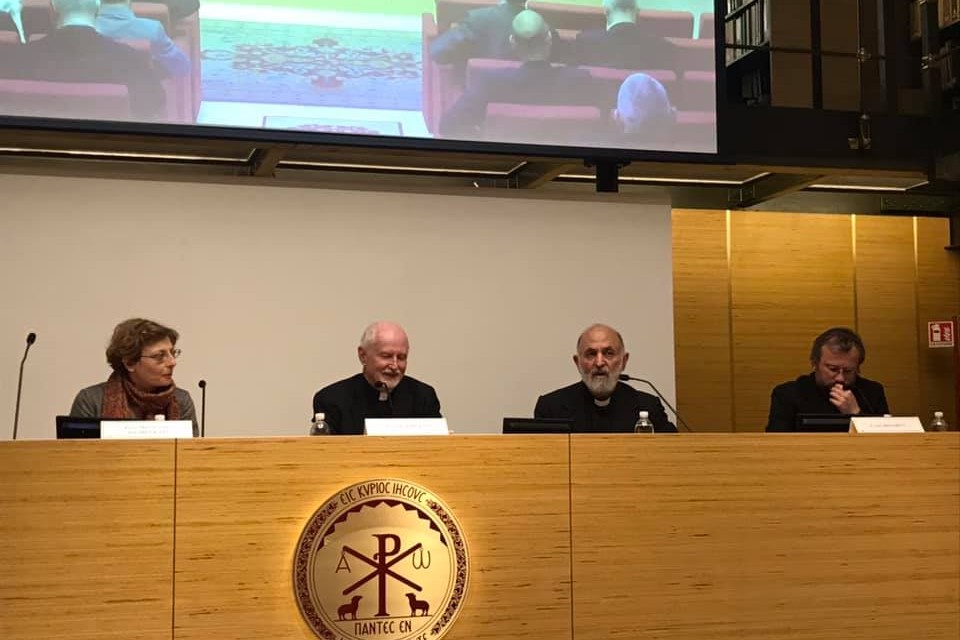A Conference in Rome Discusses Approaches for Overcoming Division in the Church

Zoya Dashevskaya, Fr. John Erickson, Fr. Edward Farrugia (SJ), Archimandrite Kirill (Govorun)
Fr. David Nazar (SJ), Rector of the Pontifical Oriental Institute, and Fr. Edward Farrugia (SJ), Professor of the Faculty of Eastern Ecclesiastical Sciences, convened the conference. Professor Thomas Bremer, of Munster University, addressed the conference’s plenary session.
“Conference participants considered the canonical aspects of autocephaly, and different forms in which autocephaly has been granted over the course of the history of both the Eastern and Western Churches,” explained conference participant Zoya Dashevskaya, Dean of the Theology Department at St. Philaret’s Christian Orthodox Institute, in Moscow. “This is really a fairly serious problem today, especially as regards the question of autocephaly in Ukraine; for this reason, conference participants’ theological, church-historical and canonical perspectives are very valuable, as they help us avoid the various thorny political aspects of the issue – though, of course, we didn’t succeed in avoiding them entirely.”
In her presentation, “The Search for Persuasive Ecclesiological Forms and Discoveries from within the Russian Church: Paths toward Overcoming Division in the Post-Constantinian Era”, Zoya Dashevskaya shared the experience of attaining church unity that believers discovered during the period of Soviet repression. Those orthodox Christians who responded to the call of Patriarch Tikhon to “form brotherhoods and spiritual unions” and who came together in communities and brotherhoods, experienced the Gospel anew in their lives. Their experience of eldership within the church, pastorhood, and Eucharistic service, was an experience of the Gospel in great freedom; and it is precisely this – much more than putting their hope in church institutions – which might help Christians today to answer the challenges of division within the church. “The experience of the 20th c. Russian church and the church today, bear witness to the fact that only “grass roots” manifestations of the people of God which have grown on their own, rather than being planted “from above” by state or church structures, exhibit real endurance,” Dashevskaya remarked.
Presenters at the conference included: Professor Emeritus and Specialist in Patristics and Byzantine studies, Andrew Louth; Athens University Professor Fr. Gregory Papatomas, ThD; Professor Emeritus of St. Vladimir’s Orthodox Seminary in New York, Fr. John Erickson; Professor of the Church-wide graduate and doctoral program Evgenij Pilipenko; Chairman of the Papal Council for Cooperation toward Christian Unity, Fr. Hyacinthe Destivelle (OP); Professor of Loyola Marymount University Archimandrite Kirill (Govorun) of the Ukrainian orthodox church of the Moscow Patriarchate; Dean of the Institute for graduate research in the field of orthodox theology of the Orthodox Centre of the Patriarchate of Constantinople in Chambésy, Archbishop of Telmessos Job (Getcha), and other leading researchers and professors of the Papal Eastern Institute, Toronto University, Munster University (Germany), and Sutton Hall University (USA).
